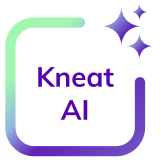The role of Artificial Intelligence (AI) in validation is becoming a game-changer. As companies face increasing regulatory scrutiny and a growing volume of data, AI-driven solutions offer a path to greater efficiency, accuracy, and compliance.
In this article, we explore how AI is transforming validation processes in the pharmaceutical industry — from automating workflows and ensuring real-time data integrity to predictive maintenance and audit preparation. By reducing manual effort, enhancing accuracy, and optimizing compliance strategies, AI empowers organizations to scale efficiently while maintaining regulatory integrity.
The need for AI in validation
Validation is a cornerstone of pharmaceutical manufacturing, ensuring that processes, equipment, and software meet regulatory requirements. Traditionally, validation has been a labor-intensive, document-heavy process that requires meticulous attention to detail. However, as regulatory expectations evolve and data volumes explode, companies need smarter ways to manage and execute validation activities.
AI presents a compelling solution by automating manual tasks, analyzing vast datasets, and providing predictive insights.
“AI is not about replacing people; it’s about augmenting their capabilities.”
Daniel Tobin AI Expert and Senior Product Owner, Kneat Solutions
By leveraging AI, validation teams can reduce human error, accelerate processes, and improve overall compliance.
In our recent webinar, Daniel Tobin and Peter Gordon, Lead, Digital Innovation and Technology at VEQTOR discussed the transformative impact of AI on validation processes.
Key benefits of AI in validation
1. Efficiency gains
AI can streamline validation workflows by automating document reviews, risk assessments, and compliance checks. This not only reduces the time spent on repetitive tasks but also allows validation professionals to focus on higher-value activities.
2. Improved accuracy
Manual validation processes are prone to human error, which can lead to compliance issues. AI-driven validation systems minimize errors by cross-referencing data in real-time and flagging inconsistencies before they become critical.
3. Predictive compliance
AI can analyze historical validation data to identify patterns and predict potential compliance risks. This proactive approach enables companies to address issues before they escalate, reducing costly delays and regulatory fines.
4. Data-driven decision-making
AI algorithms can process and analyze large datasets far more efficiently than humans. This allows validation teams to extract actionable insights, optimize processes, and ensure compliance with evolving regulatory requirements.
5. Scalability
As companies grow and validation demands increase, AI-driven solutions provide scalability without a proportional increase in workload. Organizations can manage larger validation projects without compromising quality or compliance.
Real-world applications of AI in validation
Automated validation processes
AI automates key validation tasks, significantly reducing manual effort:
- Protocol Generation: AI drafts validation protocols using historical data and regulatory guidelines, cutting preparation time.
- Workflow Optimization: AI automates scheduling and execution of tasks, ensuring timely completion.
- Real-Time Adjustments: AI monitors validation execution, detecting deviations and recommending corrective actions.
Real-time data integrity checks
AI ensures continuous data monitoring throughout the validation lifecycle, flagging anomalies before they impact compliance or product quality.
Predictive maintenance
AI-driven maintenance predictions enhance equipment reliability:
- Wear Analysis: AI assesses equipment data to anticipate failures.
- Optimized Scheduling: AI suggests maintenance during low-impact periods.
- Extended Lifespan: Proactive repairs reduce downtime and improve asset longevity.
Audit and inspection preparation
AI streamlines regulatory audits by automating documentation reviews and risk assessments:
- Historical Analysis: AI identifies past compliance gaps.
- Automated Review: AI-powered Natural Language Processing (NLP) tools ensure documents are complete and accurate.
- Risk Prioritization: AI helps focus audit preparations on high-risk areas.
Overcoming challenges and embracing AI
Despite the clear advantages, adopting AI in validation comes with its challenges. One common concern is regulatory acceptance. While AI-driven solutions are gaining traction, companies must ensure that AI applications align with industry standards and regulatory guidelines.
Successful AI adoption also requires a cultural shift. Employees must be trained to work alongside AI systems and trust the technology. Change management strategies, including education and stakeholder engagement, are crucial to fostering a smooth transition.
For a deeper dive into these insights, watch our on-demand webinar, Leveraging AI in Pharma: Navigating the Regulatory Landscape and Use Cases.
The future of AI in pharma validation
As AI technology continues to evolve, its impact on validation will only grow. Future developments may include AI-powered continuous validation, real-time compliance monitoring, and advanced predictive analytics. Companies that embrace AI today will be better positioned to navigate the complexities of tomorrow’s regulatory landscape.
Ultimately, AI is not just a tool — it’s a strategic advantage. By integrating AI into validation processes, pharmaceutical companies can drive efficiency, enhance compliance, and maintain a competitive edge in an increasingly complex industry.
Are you ready to leverage AI in your validation strategy? Download Daniel Tobin’s eBook Understanding AI in Life Sciences Quality Assurance and Validation to learn more about how digital validation and AI solutions can transform your processes and drive compliance excellence.







